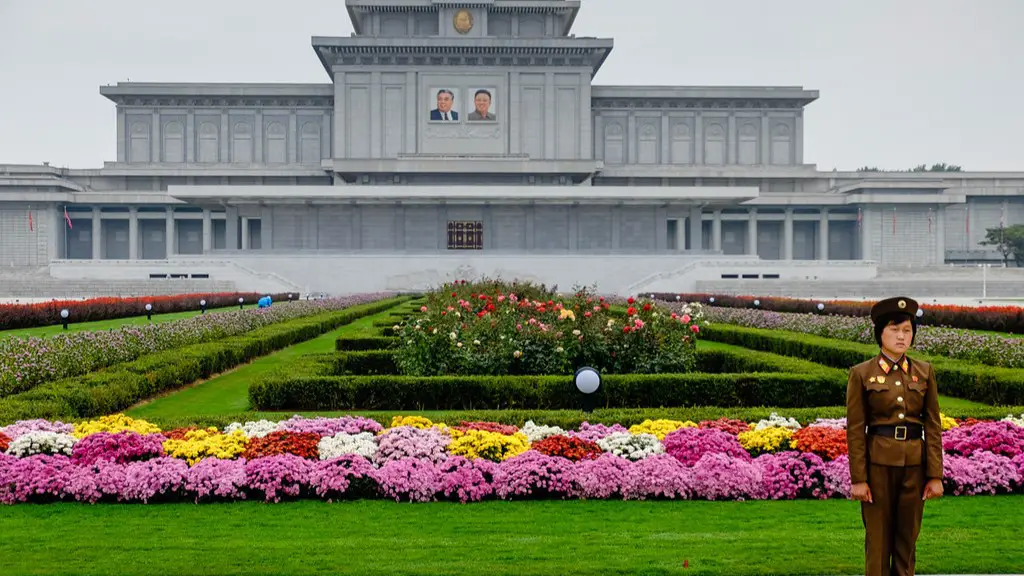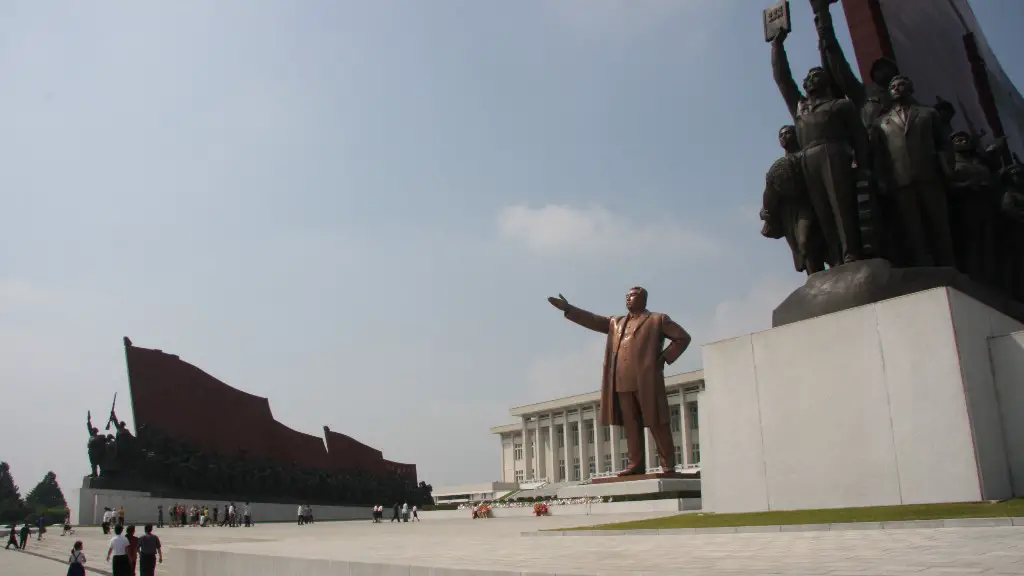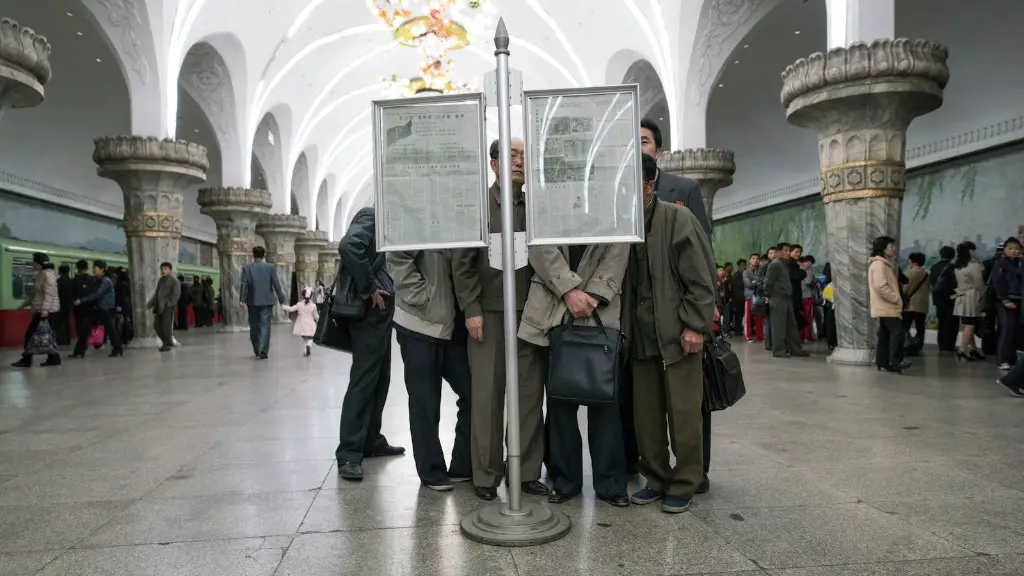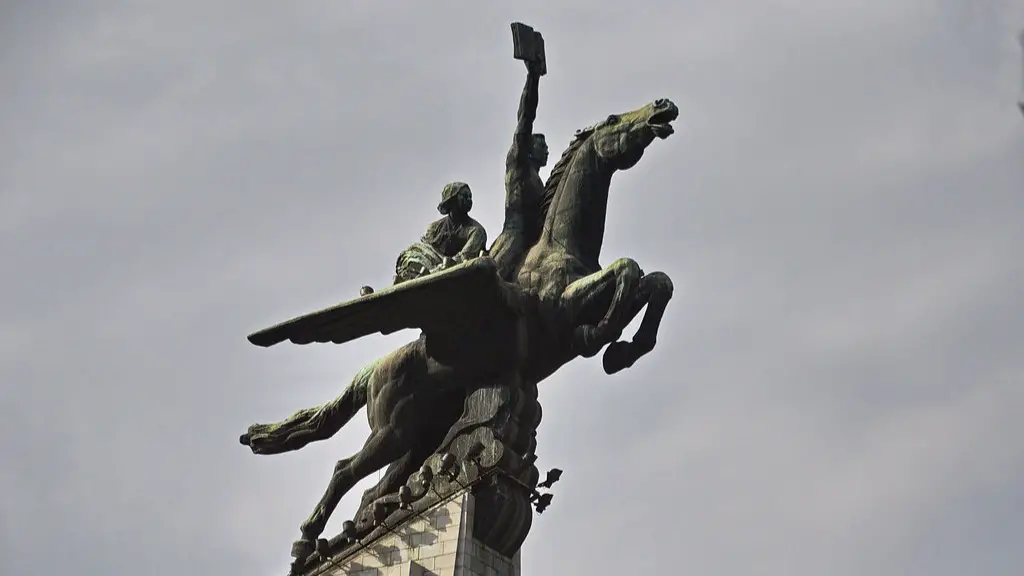Historical Overview and Causes of the Issue
North Korea has been without freedom since its establishment in 1948. The current leader Kim Jong Un assumed power in 2011, and since then the country has seen even more suppression of human rights. For a major part of its history, North Korea was dependent on foreign influences, most notably the Soviet Union, for their economy and political system. Upon their collapse, North Korea adopted a “Juche” ideology which resulted in the subsequent isolation of the country from the international community. This has caused North Korea to remain cut off from the rest of the world for the past many decades.
This lack of freedom has caused immense health and economic crises in the country. The people of North Korea face malnutrition and starvation, with only one in seven children living in heavy poverty. North Koreans have a limited access to information from the outside world and must be part of the government’s controlled media outlets. All aspects of the private lives of citizens are monitored, and the government forces them to adhere to their demands and dictates.
Political and Social Intimidation
The North Korean regime is well known for its relentless oppression of its citizens, namely through the use of political and social intimidation. Political opponents face surveillance by state security agents, threats, and sometimes even arbitrary detention. Dissenting voices are quickly silenced, and citizens risk their jobs, homes, and even their lives to speak out against the government. This totalitarian system has caused the entire population to be wary of even the most minor deviation from the government’s expectations.
Religious freedom is practically non-existent, and the country’s citizens are not allowed to practice any faith other than the state-sanctioned one. This often leads to human rights abuses, such as the persecution of Christian minorities in the country. In recent years, the government has also cracked down on Internet access, making it practically impossible for citizens to access information that could counter the government’s view.
Stifling of Public Expression
Fear is a major factor in the North Korean government’s success in suppressing freedom of speech and public expression. Citizens are subject to a variety of punishments for speaking out against the regime. In some cases, citizens have been sent to harsh labor camps where they may suffer not only physical abuse, but also psychological and emotional trauma.
The North Korean government also responds to any public expression of dissent or criticism with immediate and severe punishments, such as imprisonment, public humiliation, and even death. This fear of retribution has caused citizens to largely remain silent about their grievances, unable to voice their feelings to the outside world.
Consequences
The lack of freedom in North Korea has had far-reaching consequences that go beyond the individual citizens of the country. On a global level, the harsh repression of basic human rights can be seen as emboldening other dictatorships and oppressive regimes. The lack of faith and trust in the government of North Korea has made the country an economic and political pariah in the eyes of the international community.
The situation has also had a profound effect on neighboring countries, especially South Korea, which has had to bear the brunt of North Korea’s repressions. Since 1948, the two countries have remained divided in terms of politics, economics, and culture. The North’s oppressive policies have crippled its economy, creating an increasingly difficult situation for the South.
International Pressure
Despite the years of international inaction, in the past decade, the United Nations and other international organizations have taken a more active stance against the North Korean regime, passing resolutions and imposing diplomatic and economic penalties for violations of human rights. This shift in policy has been mainly due to the increased attention given to the situation by the international community, especially the United States.
The Trump administration also introduced a strategy known as maximum pressure, which entails intensifying punitive measures such as economic sanctions and diplomatic isolation. While these measures have not had an immediate effect on North Korea, they have brought the issue of freedom in North Korea to the forefront of international conversations.
Hope in Reunification
Despite the decades of division, there is hope that, one day, the two Koreas may be reunited. In recent years, South Korea has been encouraging dialogue with North Korea and rebuilding diplomatic ties. In 2018, the two countries opened the first formal communication line, marking a key milestone in the peace process.
Today, North and South Korea have opened other dialogue channels, and a number of high-level exchanges have taken place. The South Korean government has also formed a special task force to facilitate reunification by 2045. These efforts, though small, represent a step forward in the journey towards achieving freedom and peace in the Korean peninsula.
Economic Solutions
In order to bring freedom to North Korea, greater economic opportunities are needed. To achieve this, the international community must increase economic aid and engage in more economic dialogue with the countries in the region. As part of this strategy, sanctions relief should be granted to North Korea to empower its citizens and provide them with the resources to lead more prosperous lives.
Development initiatives that support the private sector are also necessary to promote economic growth. For example, the South Korean government has recently committed to providing financial assistance to North Korean business initiatives, helping to create jobs in the country and ultimately improve the livelihoods of its citizens.
Change in Attitudes
For North Korea to move into a free, democratic society, an attitude shift must also take place within the country. Citizens must begin to demand more from their leaders, and reject the current oppressive regime. This is something that is likely to happen over a long period of time, as more people are exposed to news and information from outside the country.
The last few years have also seen a rising sentiment within North Korea that is supportive of human rights and economic development. This increasing awareness of the negative impact of a lack of freedom is a positive sign, and must be encouraged in order to bring about meaningful change.
Arms Control
Given North Korea’s long history of aggression, it’s essential that arms control measures are put in place to ensure that the country does not become a greater threat to global peace and security. The international community must redouble its efforts to monitor the country’s nuclear and missile programs, in order to prevent them from accessing weapons of mass destruction.
It’s also important to ensure that North Korea complies with the various arms control laws that have been set by the UN and other international organizations. This would reduce the risk of military confrontation and help to create the right environment for freedom to flourish in the country.
The Role of China
China is a major player in the international community, and its support is critical to bringing freedom to North Korea. Beijing has taken a much more direct role in mediating the nuclear standoff between Pyongyang and Washington and has also increased its investment in the country to help promote economic growth.
Ultimately, China’s support is a double-edged sword, as it provides North Korea with both the economic and diplomatic support it needs, even as it maintains control over the country’s access to information and government activities. This limits the effectiveness of any attempts to impose new freedoms on North Korea and any move towards progress must include China as a key partner.





